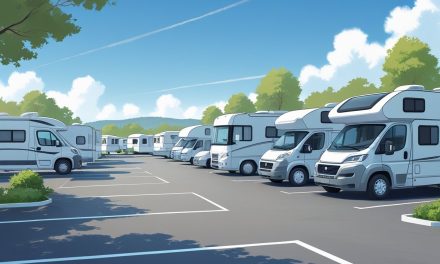Would you like to save this article?
When hitting the open road in your recreational vehicle, preparedness is as essential as your travel route and campground reservations.
Safety equipment, particularly first aid kits, represents a cornerstone of responsible RV ownership and travel readiness.
Our recent reader poll asked a seemingly simple question about this crucial safety tool, revealing a striking consensus among our community members.
Remember, these illuminating polls appear regularly in our newsletter, so be sure to subscribe and cast your vote to become part of our ongoing research into RV lifestyle trends and practices. Your participation helps us build a more comprehensive picture of the RV community’s habits and preferences.
The Results of Our Poll Were As Decisive as They Come
- A unanimous 100% of respondents answered “Yes,”
- With absolutely no one selecting “No.”
This perfect score for safety consciousness deserves exploration.
The Band-Aid Brigade: RVers United in Safety
It’s not every day we see poll results that would make a statistician’s job utterly boring. No need for complex analysis when every single respondent agrees! RVers, it seems, have formed what I like to call “The Band-Aid Brigade” – a united front of preparedness warriors armed with antiseptic wipes and butterfly bandages.
Perhaps this consensus isn’t surprising when you consider that RVers are essentially taking their homes into sometimes remote locations. When the nearest urgent care might be two mountain ranges away, that little white box with the red cross becomes more precious than the last roll of toilet paper at a crowded campground.
Beyond the Basics: What’s Really in Those Kits?
While our poll confirms everyone has a first aid kit, I can’t help wondering about the contents. Is yours the standard-issue kit that came with your RV, now gathering dust under the sink? Or have you customized yours to include everything from snake bite kits to that special ointment for when your spouse inevitably touches the hot RV stove?
I suspect many RVers have tales of their first aid kits saving the day – from treating a child’s scraped knee at a national park to addressing more serious situations miles from professional help. These kits aren’t just ticking a box on the safety checklist; they’re providing real peace of mind.
The Psychology of Preparedness
There’s something deeply satisfying about being prepared. In the unpredictable world of RV travel, where weather, road conditions, and campsite situations can change rapidly, having control over emergency medical situations offers significant comfort. That first aid kit represents not just bandages and pain relievers, but a tangible symbol of responsible adventure-seeking.
It’s worth noting that RVers tend to be a self-reliant bunch. The lifestyle itself attracts people who value independence and problem-solving. Having medical supplies on hand aligns perfectly with the ethos of “we’ve got this covered” that pervades the RV community.
Why the Unanimous Result?
The 100% consensus on carrying first aid kits reflects several fundamental aspects of RV culture and practical necessity. Most RVers travel to outdoor destinations where minor injuries are common – hiking trails, lakeshores, and rustic campgrounds present numerous opportunities for cuts, scrapes, burns, and other incidents requiring immediate attention. Additionally, many RV travelers venture into areas with limited or distant medical facilities, making self-sufficiency in handling minor medical situations not just preferable but essential.
The demographic profile of many RVers – often mature adults who prioritize planning and safety – likely contributes to this universal adoption of first aid preparedness. Furthermore, the RV community has always exhibited strong information-sharing tendencies; when experienced travelers emphasize the importance of safety equipment, newcomers tend to follow suit. This remarkable unanimity demonstrates that when it comes to health and safety, RV enthusiasts recognize that proper preparation isn’t optional – it’s a fundamental aspect of responsible travel that allows everyone to enjoy the freedom of the open road with confidence and peace of mind.






